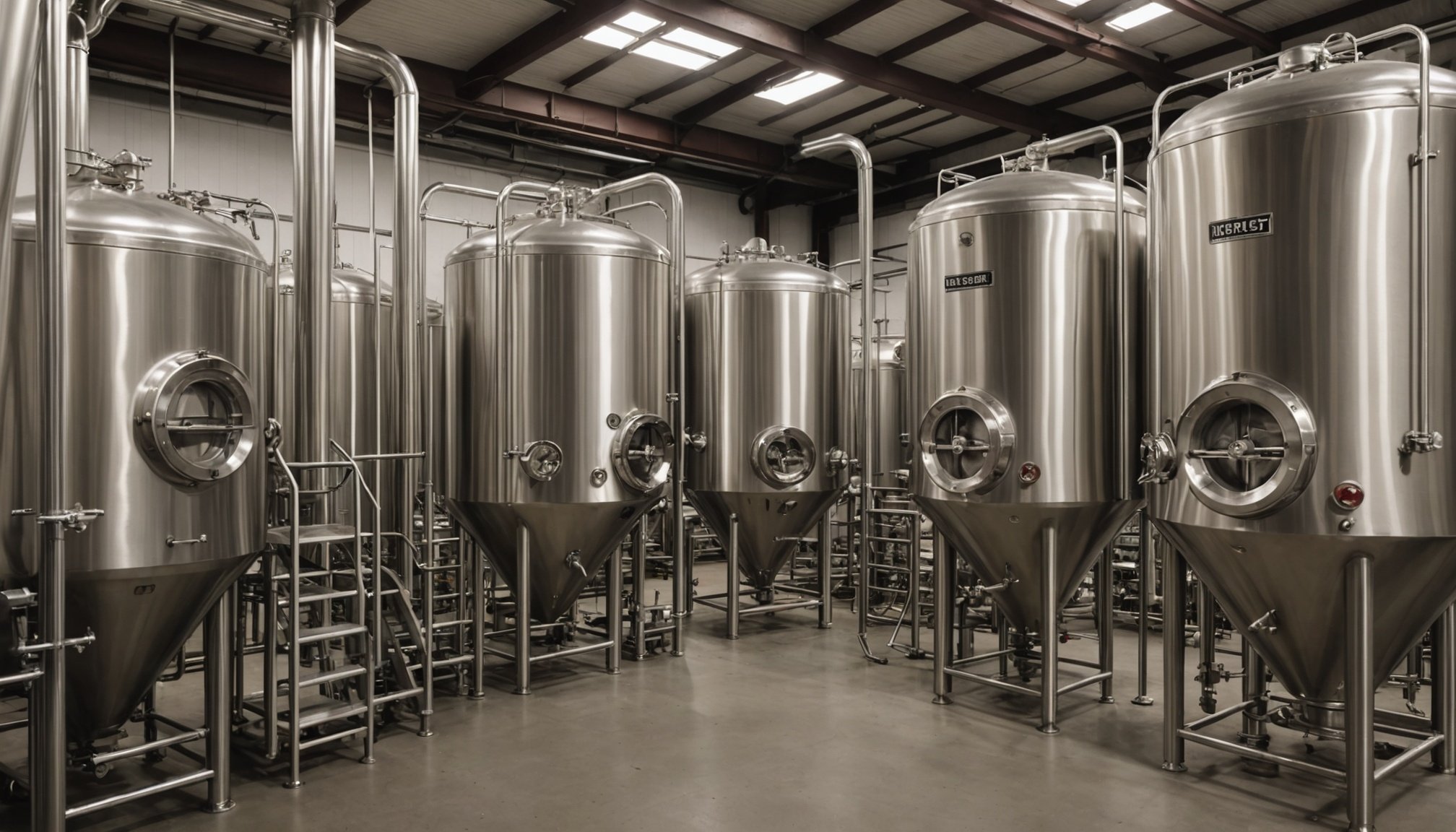Overview of Current Distribution Challenges in UK Breweries
UK breweries face multiple challenges within their distribution networks, significantly impacting their operations. These brewery logistics challenges often revolve around inefficiencies that hinder the delivery speed and accuracy.
Poor route management is a persistent issue, causing delays and increased transportation costs. UK breweries struggle with logistics inefficiencies, primarily due to outdated systems unable to keep up with market demand and geographic complexities. Such inefficiencies result in misaligned delivery schedules and unsatisfied customers.
Recent trends also present new hurdles. The rising cost of fuel and changes in consumer demand patterns necessitate a re-evaluation of existing distribution models. UK breweries must adapt to shifting demand for craft and speciality beers, altering distribution priorities and techniques to ensure efficient service delivery.
Furthermore, emerging environmental regulations push breweries to adopt more sustainable distribution practices. Implementing eco-friendly solutions in logistics can be both a challenge and an opportunity for innovation.
Also to discover : Unlocking UK Government Grants: Key Strategies for Entrepreneurs to Propel Tech Innovation
In short, combating distribution challenges requires UK breweries to address complex logistics inefficiencies. By understanding these hurdles and the dynamics of recent trends, breweries can work towards improved distribution networks, ensuring efficient and effective logistics solutions to support future growth.
Innovative Strategies for Distribution Optimization
In the quest for optimized distribution, UK breweries are increasingly turning to creative strategies. Implementing route optimization software is one such approach that significantly enhances delivery schedules. This technology analyses multiple factors such as traffic patterns and weather conditions, allowing breweries to plan the most efficient routes. The result is not only faster deliveries but also reduced fuel consumption, benefitting both the bottom line and the environment.
Breweries are also leveraging local partnerships to streamline distribution. By collaborating with local businesses, these partnerships improve accessibility and reduce transportation costs, ultimately enhancing brewery efficiency. Engaging with local distributors can also foster a sense of community support and bolster brand loyalty.
Several case studies from UK breweries demonstrate the success of these new strategies. For instance, a brewery in Manchester successfully implemented route optimization technology and local partnerships, resulting in a 20% reduction in delivery times. These tangible benefits not only improve operational efficiency but also contribute to increased customer satisfaction and retention.
Embracing such innovative strategies ensures that breweries can navigate the challenges of today’s dynamic market while maintaining a competitive edge. By continuing to adapt and evolve, UK breweries stand to achieve remarkable growth and resilience.
Technology’s Role in Enhancing Brewery Distribution
In the competitive landscape of UK breweries, technology solutions are pivotal in refining supply chain management and boosting brewery efficiency. Implementing advanced brewery software can streamline operations, ensuring optimal performance and customer satisfaction.
Inventory Management Systems
Effective inventory management systems are essential for maintaining a balanced stock level. By utilizing intelligent algorithms, breweries can prevent overstock and shortages, enabling better resource allocation. This capability not only mitigates waste but also enhances operational efficiency, leading to cost-effective outcomes.
Real-time Tracking Technologies
Real-time tracking technologies significantly contribute to improved logistics. They provide up-to-the-minute data on delivery status, allowing breweries to adjust distribution strategies promptly. Such transparency bolsters customer service, as clients receive accurate information about their order delivery timelines.
Data Analytics for Demand Forecasting
Leveraging data analytics for demand forecasting empowers breweries to anticipate market needs accurately. By analyzing trends and consumer behaviour, breweries can tailor their production and distribution processes. This foresight fosters agility in responding to market demands, ensuring minimal disruption in the supply chain and maximizing profitability.
Incorporating these technology solutions modernizes brewery operations, fostering resilient distribution networks capable of thriving in a dynamic market.
Best Practices from Successful Breweries
Understanding best practices from successful breweries can offer valuable distribution insights for those aiming to enhance their operational efficiency. Several UK breweries have set benchmarks in creating highly efficient distribution networks, playing a significant role in their success.
One critical strategy adopted by these breweries is the integration of advanced analytics into their logistics planning. This approach allows them to anticipate demand fluctuations, optimize stock levels, and reduce wastage. Their technological investments streamline their distribution processes, leading to noticeable improvements in service delivery and cost efficiency.
Another key strategy is actively engaging in community-driven distribution models. By collaborating with regional businesses, successful breweries can expand their reach while maintaining local connections, fortifying their presence in the community.
A brewery in Edinburgh exemplifies these practices by achieving a 30% reduction in transportation costs through strategic partnerships and optimized route planning. Their success emphasizes the importance of adaptability and innovative thinking in improving brewery logistics.
These distribution insights allow other breweries to identify tailored strategies, fostering operational growth and a competitive advantage in the marketplace. By emulating proven tactics, breweries can bolster their networks, ensuring resilience and sustainability in their operations.
Cost Reduction Strategies in Distribution
For UK breweries, reducing costs in distribution is crucial to maintaining efficient operations. Several factors contribute to distribution expenses, with fuel, manpower, and logistics systems being significant components. Analyzing these factors allows breweries to identify potential savings.
Cost reduction can begin with optimizing delivery routes. Utilizing route optimization software reduces fuel consumption and saves time, directly impacting the bottom line. This method ensures deliveries are both time-efficient and environmentally friendly.
Breweries are also exploring techniques to lower expenses without compromising on quality. Outsourcing specific logistics tasks can be effective, leveraging third-party expertise while keeping core functions in-house. This approach helps streamline operations and reduce overhead costs.
Additionally, advancements in technology present new opportunities for cost savings. Unlike traditional methods, implementing warehouse automation and robotics minimizes labour costs and enhances brewery efficiency. These innovative solutions may require an initial investment but offer long-term savings and increased operational accuracy.
By strategically adopting both traditional and contemporary methods, breweries can enhance their logistics systems and substantially cut operating costs. Brewery expenses can be minimized by focusing on streamlined operations, ultimately supporting sustainable growth and competitive advantage in an evolving market.
Expanding Customer Reach through Efficient Distribution
In the competitive landscape of the brewing industry, expanding customer reach is crucial for sustaining growth. By enhancing brewery distribution tactics, UK breweries can tap into new markets and strengthen their presence. Efficient distribution networks enable breweries to deliver products swiftly and reliably, ensuring that the right product reaches the right customer at the right time.
Strategic Approaches
-
Market Expansion: To achieve broader market penetration, breweries can explore partnerships with regional distributors. Collaborations can not only widen reach but also reduce transportation challenges.
-
Targeted Marketing: Effective campaigns supporting distribution networks can highlight unique brewery offerings, thus attracting diverse consumer segments.
Real-World Success
Several UK breweries have championed these strategies, resulting in improved customer acquisition. For instance, by optimizing logistics and refining their marketing mix, a notable brewery successfully ventured into niche markets, substantially increasing their sales.
Such advancements underscore the importance of integrating logistics with robust marketing techniques. By ensuring seamless logistics and savvy marketing, breweries can not only expand customer reach but also boost market influence, nurturing brand loyalty in a dynamic environment.











